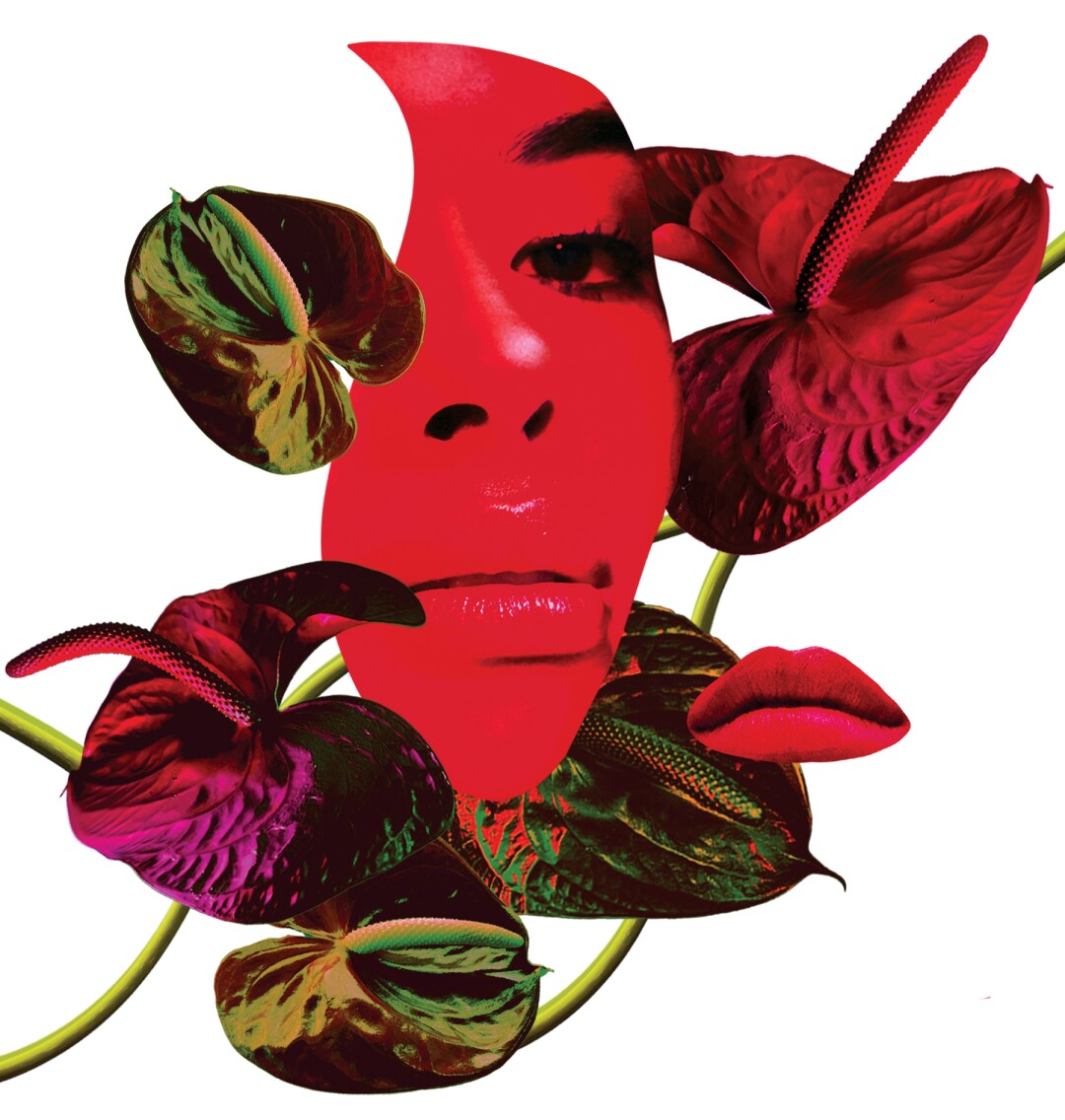This story is part of Image issue 5, “Reverence,” an exploration of how L.A. does beauty. See the full package here.
One of my best friends took her life in late August. Plunged into despair, I posted several pictures in her tribute on my Instagram account. I had no language to describe my grief; I was at a complete loss for words that might make sense of what had happened. I helped her family make funeral arrangements, communicated with friends about the news and created a memorial website. After the funeral — after the friends who had traveled to L.A. for the repast had gone home, after the condolence flowers sent by loved ones had withered and been tossed — I was alone again. A strange sensation came over me: I could hardly believe I was still alive, walking and breathing in a world my dear friend no longer lived in. How could it be possible? My mind couldn’t grasp this, much less my tender heart.
Taking myself to the beach seemed the only thing that would alleviate my panic at this dissonant reality. The scale of the Pacific — and me, insignificant against its glittering blue vastness — oriented me toward this new sense of myself. One day, about two weeks after the funeral, I posted a photo of myself on Instagram wearing a triangle top string bikini, my body reflected in the full-length mirror in my living room. I captioned it: A grief trap.

(elena marie/For The Times)
What did it mean? I still don’t know, but I haven’t deleted it. Maybe I wanted some way to document my bottomless melancholy; at the same time, it was a desperate bid to transfer the intense vulnerability I felt onto the visual internet. I’d made myself into the image of a mundane thirst trap in hopes of deliverance from my pain, my untenable loneliness. It was, of course, a futile impulse. Still, it was something in the face of so much overwhelming nothingness.
I’ve always enjoyed consuming thirst-trap photos — of stratospherically hot celebrities like Rihanna and Channing Tatum, and of IRL friends, whose horny online antics I wholeheartedly support. I’ve played the enthusiastic art director, wardrobe stylist and camerawoman for many a delightful trap-setting production. Occasionally, I indulge in posting thirst traps myself, of the mockingly ironic “felt cute, might delete later” variety. Typically, I post my campiest attempts at “trapping” on Instagram stories, rather than the grid, to avoid looking thirsty on main. While I’ve relished sending titillating photos of my naked body to lovers, I’m not comfortable with a sexy image of myself being on view by acquaintances on the internet if it doesn’t disappear in 24 hours.
People replied to my “grief trap” with loving comments (“sending you strength,” “so sorry<3”), as they’d done to the previous posts with old pictures of my dearly departed friend. Yet others responded the way one would to a putative thirst trap (“stunning!” “DAMN”). There was something deliciously deranged about it: a provocative photo of me wearing very little, on my way to the beach — the lowest-common-denominator genre of social media content — posted in the wake of my devastating grief, and the curious combination of sympathy and thirst below.
Susan Sontag writes, “Photography implies instant access to the real. But the results of this practice of instant access are another way of creating distance.” Along with the bikini photo, my grief-trap carousel included a landscape portrait of El Matador Beach; a selfie of my frowning, freckled face under the brim of a Dodgers hat, the ocean behind me; a top view of the tacos I ordered that day at a Malibu cafe but could barely taste, my mouth dead to pleasure in those weeks. “To possess the world in the form of images is, precisely, to re-experience the unreality and remoteness of the real,” Sontag concludes. Maybe that’s it: Those images I posted were a medium by which I could process the shocking reality of my loss. To reckon with this terrible, uncanny landscape in which everything looked exactly the same but nothing was.
Jacques Lacan, the French psychoanalytic theorist, wrote, “Desire is a relation of being to lack.” Another strange sensation came over me in the difficult, relentless days immediately after my friend’s death. I suddenly felt as if I were in love, sick with the longing that can be so pleasurable when the object of one’s desire feels just within, then out of reach. I’d known my friend since we were 12, restless girls discovering the borders of where one ended and the other began. If she — and our friendship — no longer existed, what meaning could the future hold? Nothing lived for me in the next week, the next month. There was only the present and her persistent absence.
So I rode the waves of what felt like falling in love. There was no joy in it, as there was none in the pictures I posted, though if someone who didn’t know me glanced at them, they wouldn’t have been able to tell the difference. Grief looks exactly like any other day at the beach in L.A., another boring thirst trap. That Instagram post, however, served a function I hadn’t known I’d needed in bereavement — to tell a story I couldn’t yet say with words. That I was hurting, but still, somehow alive.
Jean Chen Ho is a writer in Los Angeles and a doctoral candidate in creative writing and literature at USC, where she is a Dornsife Fellow in fiction. She has an MFA from the University of Nevada, Las Vegas. She was born in Taiwan and grew up in Southern California. Her first book, “Fiona and Jane,” a collection of linked stories, is forthcoming from Viking.
More stories from Image
For all the latest Life Style News Click Here
For the latest news and updates, follow us on Google News.

